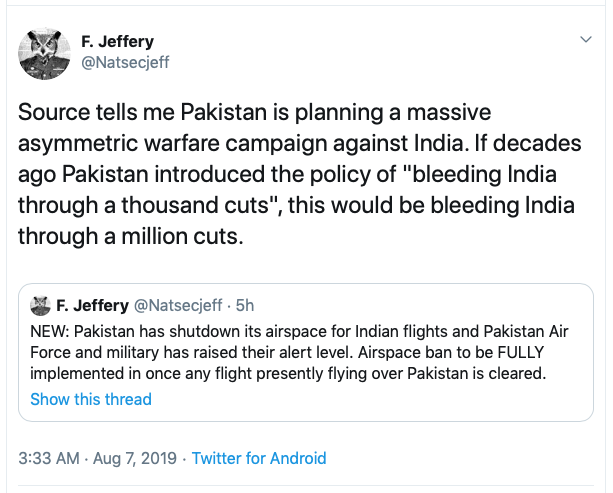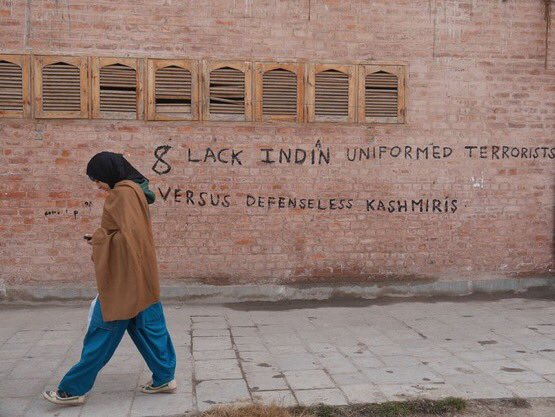It is premised on our ability to handle Kashmiris and Pakistan.
What it ignores is the role of local intelligence in insurgencies and the rising ambitions of Al Qaeda and ISIS in South Asia.
The problem is not just the possibility of violence, but of disobedience.
In one stroke we have eliminated the possibility of willing cooperation by those who oppose militants.
We are left with technical intelligence and bribery/coercion alone now.
The US - which has much more power and tech capability - has struggled with this in Afghanistan.
Reliant primarily on mukhbirs and SIGINT the greatest military power the world has ever seen has bombed its way to defeat.
We do not have that advantage, although we have the advantage of home terrain.
The abuses on all sides did not help, but in the end, enough Punjabis sided against militancy.
Is that even possible in Kashmir now?
For that it is worth looking at Pakistan in Afghanistan, especially the support for Mansour as head of the Taliban.
This is generally only seen as Pakistani betrayal. The role of ISIS is ignored.
It can guide them, but not fully control them, as evidenced by the many horrors - from Lal Masjid to the attack on the Army School in Peshawar.
No excuses for them, but they have limited control.
The US and Afghanistan pushed Pakistan to do so - and the US and international community have more leverage and power than we ever will - and Pakistan failed.
To rally the rest to his banner Mansour - greenlighted by ISI most likely - attacked Afghan government forces.
It ended badly for everybody, except for the most extreme militants.
It makes little sense to believe we can exert greater pressure.
We may be able to pressure Pakistan, even get China on board, but these guys have no such pressure points.
It is to them that we have handed the biggest strategic advantage.
Doval is an old man fighting wars he couldn't really win more than 25 years ago.
Modi and Shah are petty thugs.
This is the team that has brought us this crisis.
-end-






